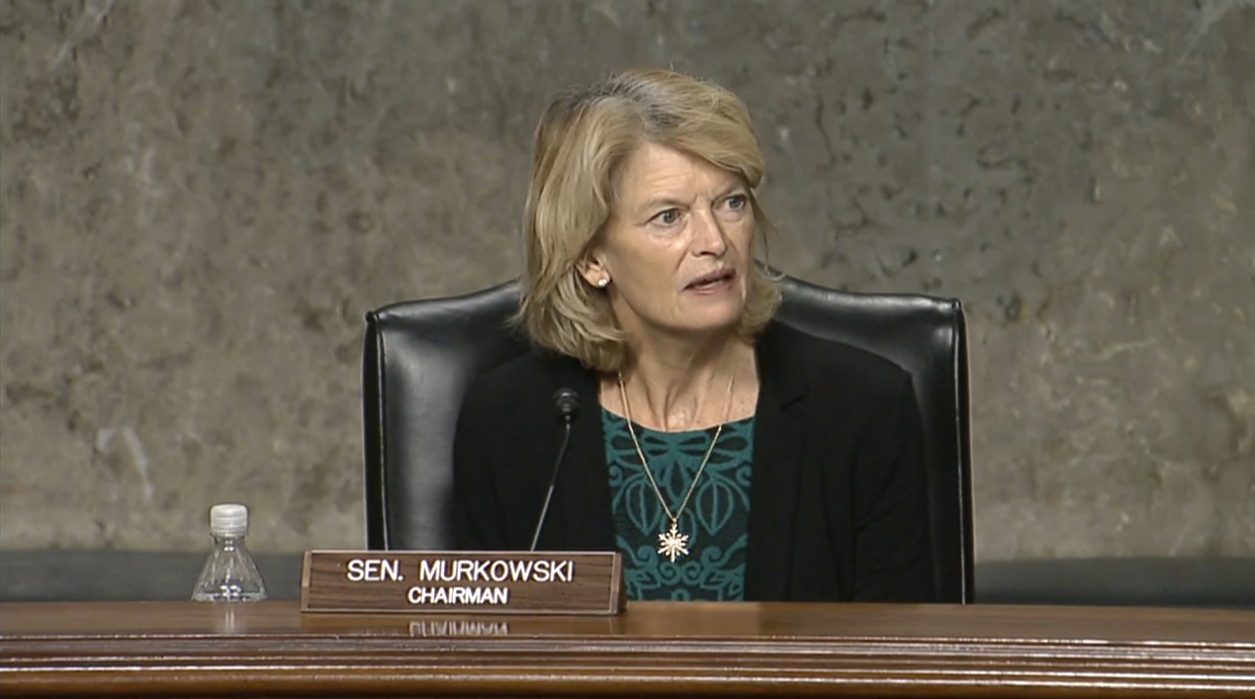Murkowski: America Must Maintain Position of Power in O&G, LNG Production
U.S. Senator Lisa Murkowski (R-AK) took part in a U.S. Senate Energy and Natural Resources Committee hearing to examine global climate trends and progress in addressing climate change. During the hearing, Senator Murkowski questioned the United States’ and the world’s leading authorities on the future of America’s oil and gas and liquefied natural gas (LNG) markets.
The hearing consisted of one panel of five witnesses: Dr. Fatih Birol, Executive Director of the International Energy Agency; Dr. Angel Hsu, Assistant Professor, University of North Carolina-Chapel Hill; Dr. Richard Newell, President and CEO of Resources for the Future; Dr. Scott Tinker, Director, Bureau of Economic Geology, University of Texas-Austin; Mr. Mark Mills, Senior Fellow, Manhattan Institute.
Senator Murkowski has worked hard to rebuild America’s domestic critical minerals supply chains, including through her American Mineral Security Act, which was enacted in the Energy Act of 2020. Murkowski began the hearing by commending Dr. Birol and Mr. Mills for recognizing the importance of minerals in transitioning to clean energy systems and reinforced the need for it to remain a priority.

Click here to watch video
During the hearing Murkowski highlighted her concern over recent executive actions that have jeopardized the future of U.S. fossil fuel production.
“We have seen recent executive actions that could potentially jeopardize the very future development and production of U.S. fossil fuel resources. As we know U.S. LNG markets, our exports, are particularly important for markets in Asia. If future U.S. oil and gas exports are no longer available within the broader global market, this reduction in supply is going to be met elsewhere,” said Senator Murkowski. “So to you, Dr. Birol, what countries benefit the most from U.S. oil and gas exports, and where will future supplies come from if the U.S. cuts its exports?”
Dr. Birol confirmed that, “if the U.S. production of oil and gas is to decline, and if there is a strong demand around the world, the gap will be met mainly by cheap-cost Middle East countries.” He also noted in his response that China is currently the top purchaser of U.S. LNG exports. Birol explained that if U.S. LNG were to replace coal in Asia, it could lead to significant declines in carbon dioxide emissions as well as air pollution.
Senator Murkowski asked Mr. Mills what a reduction in U.S. oil and gas production would mean for the development of global markets. Mr. Mills explained that the demand for oil is expected to return to roughly the same level as prior to the COVID-19 pandemic. He also acknowledged Russia as a nation that would potentially fill the gaps in the production of oil and gas. Mills ended his response by explaining the potential impacts of America ceding its position of power in the global oil and gas market.
“The American oil and gas industry is the technologically most sophisticated in the world. Path-breaking capabilities not just to produce marginal oil and gas more inexpensively but more efficiently—which in the fuel cycle for carbon dioxide emissions matters—and more environmentally sensibly. So we are the pioneers on that. If we push that oil production and gas production to parts of the world which are not as cautious and not as good as us, the oil and gas will be produced there. It will be less efficient and less clean and probably more expensive, which I think net bad for the world,” said Mr. Mills.
Murkowski ended her comments by reiterating the role that the United States plays in LNG and oil and gas production. “I would certainly hate to see us go backwards in that very significant and dominant role,” Murkowski concluded.
Safety Disclaimer: Members of the committee are able to participate in person or online. The Committee follows guidelines developed in consultation with the Office of the Attending Physician and the Senate Rules Committee to protect the health of members, staff, and the public. This includes maintaining six-foot social distance spacing in the hearing room. Pursuant to this guidance, Senate office buildings are not open to the public other than official business visitors and credentialed press at this time. Accordingly, in-person visitors could not be accommodated.








